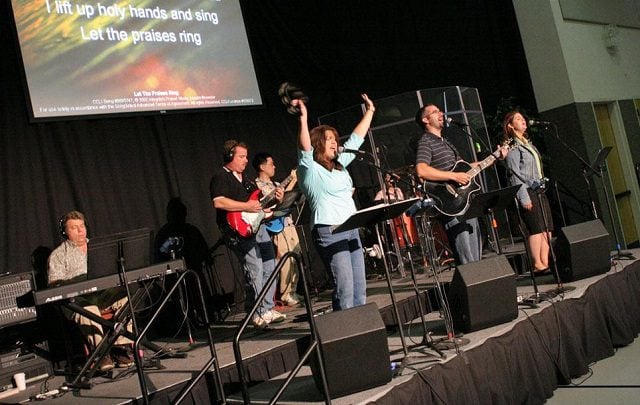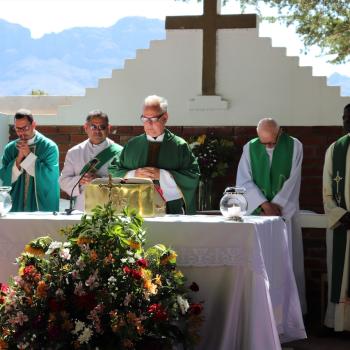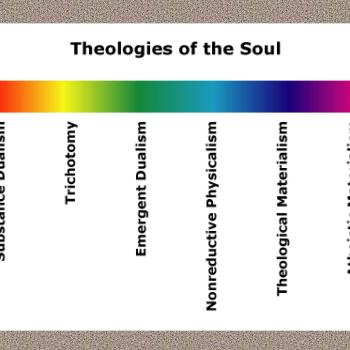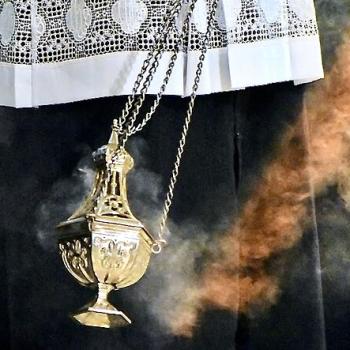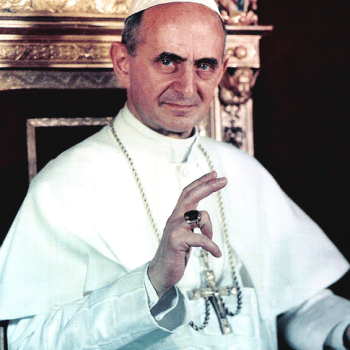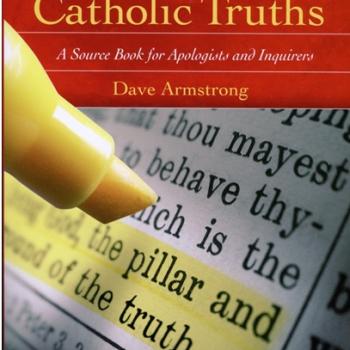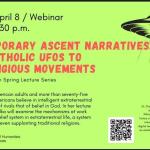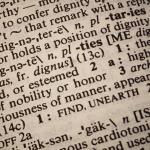***
***
* * * * *
In my non-denom, “Jesus people” / “Jesus movement” days, that’s exactly what we did: rock music and sermons; no liturgy at all . . . It’s not all bad, because worship comes from the heart (and we did so back then), but it’s not the biblical model of worship, either.
hmm…worship comes from the heart, but not biblical…
What do you mean? I think you may have misunderstood what I wrote. I was saying that I was worshiping from my heart in this fashion as a Protestant (which is good and not a bad thing), but that the “model” or structure of that sort of service is not biblical, because biblical worship is not sermon-centered, it’s sacrifice [OT] / [NT] eucharistically-centered.
I know you are saying this type of worship is not all bad…but if it comes from the heart…how is that not biblical..I am older, a revert, found Jesus in many types of worships…if your heart is there, you will find Him and he will know it…just seems the smaller we make the box, the harder it is to fit in it…
I didn’t say the “from the heart” aspect was not biblical. It’s the distinction between spirit and form. The form of rock music + sermon (minus liturgy) is not the biblical norm. Worshiping from the heart is very much the biblical injunction. So one part is right and the other is not what we normally see in Scripture.
We can differentiate between good and bad things in one act. It’s not completely black and white. God honored our worship as non-denom Protestants insofar as our hearts were right with Him and our worship truly directed towards Him (and I know that mine was, and my wife’s was: for the most part). But it wasn’t the Mass. So it’s a mixed bag.
I was trying to avoid the judgmental legalism of saying that those types of worship are utterly bad.
I’ve also had very wonderful and spiritual worship experiences at charismatic Catholic Masses (and defend that movement in several papers of mine). But they are Masses, which is the point . . .
The deepest emotion I have felt has been at reverent, calm celebrations of the Mass–as Nessa says, preferably Latin.They concentrate the mind and heart wonderfully so that it’s possible to pray the Liturgy. That often brings me to tears, when I realize what is happening before me.
For a lot of people, this pic’s message is like slapping their momma … Disagree as I do with rock n’ roll (or even Catholic folk rock) services, people take their own brand of worship so personally that it’s difficult to ask them to think about it or question it …
Indeed; yet it is a valid point, and if one claims to be so in-tune with what is “biblical” (and most Protestants — like myself, very much so, in those days — assume that they “own” the Bible, over against Catholicism), then they ought to apply biblical models of worship as well. This is only holding them to their own ostensible standard (sola Scriptura).
It’s not so much what they do as what they omit and look down on. Many Protestants assume (again, I was one) that formal worship is inherently impious and inferior. This is utterly unbiblical.
It’s true that one can be formal without the heart, just as they can worship from the heart minus liturgy. People fall short in all sorts of ways. The key is to get the heart right towards God, and worship according to the liturgy as it has been passed down through the centuries. Both/and . . .
No one was less “liturgical” than I used to be. When I was going to a Lutheran church (1977-1980), I only went to the Bible studies: didn’t even go on Sundays (amazing, as I think back on that). I’ve come full circle on this issue.
Dave, here’s an observation. As an evangelical, all I saw in the book of Acts were sermons and miracles. The letters we have from St. Paul and the others are sermons or instructional. Outside of the Last Supper and St. Paul’s mention of it in ! Corinthians, we didn’t see much stress in the NT on the Eucharist at all. There wasn’t a set liturgy in the NT, or something explicit about worship styles – just a lot of preaching. We saw it as a kind of free for all, and would have considered a liturgy centered around the Eucharist as even stranger than the church down the street that didn’t allow music because it’s not in the NT. I see all of that now, but I can understand why it would be a hard sell for some people.
I think that what finally woke me up was the day I visited a Dayton-area “mega church,” and they were having the Lord’s Supper with lunch trays and juice boxes. That stunned me in a way that I didn’t completely understand, and it made me rethink the kind of well intentioned foolishness that I had been participating in. Thank God for His Church.
This is a great discussion. Agree not completely black and white . . . we were the only Catholic family there [at a non-denom school] ..we had the best of both worlds…we learned alot from others traditions, as they did about Catholicism…made us better Catholics..so I have a great respect for worship in all forms …don’t feel like we can truly know the best and most perfect way to worship Our Lord…just have to trust in the Lord and be careful about respecting other forms of Christian worship.
I agree that you have to dig deeper into Scripture to see liturgy. I certainly did, myself. But we see plenty of it in Revelation, in Hebrews (with the theme of Jesus as high priest), in Paul’s use of sacerdotal language and references to “altars” and explicit real presence language, in the Last Supper, and John 6 (where sermonizing and the Eucharist are strikingly combined), in the post-Resurrection appearance to the disciples on the way to Emmaus, where Jesus disappears after they break bread; in the motif of Jesus as Lamb, and as our sacrifice . . . Also, after the apostles preached, they often baptized as well (e.g., notably, Acts 2), which combined the sacramental and supernatural transformation with the preaching.
I would say about sermons, that they are great (I wish homilies were far better in the Catholic Church: that every priest could preach like Cardinal Newman). I have nothing against them per se: only with placing them at the center or apex of a worship service. I’ve loved good sermons both as a Protestant and as a catholic, because I’m a big “ideas” and intellectually-oriented guy. It’s the sermon emphasis to the complete exclusion (oftentimes) of the Eucharist (or even any liturgy at all) which is objectionable.
Obviously, Protestants differ in this respect, and there are degrees. The point of the meme was to critique the “low church” form of worship, that I happened to practice myself for 13 years.
Oh, I fully agree, Dave. I think it could be said with some fairness that I knew what the Bible said back then, but in spite of the intensive amount of theology, history and word study that I did, it all lacked the framework that the Church provides for it. I also did not have the slightest clue as to how *often* the Deuterocanonicals are referenced in the NT. That goes along with all of the rest of the things you mentioned.
I am always very thankful for the many great and true things I learned as an evangelical. Since I critique lots of things within Protestantism, as an apologist, sometimes folks get the completely erroneous impression that I am somehow “anti-Protestant.” Not at all: not in the sense that these folks think: as if I think it is a fundamentally “bad” thing. No! It’s a good thing (i.e., non-liberal forms of Protestantism) that has some serious errors contained in it, but is mostly incomplete or skeletal, rather than bad through and through.
One proof of that (among many) is the fact that the Protestant publisher, Beacon Hill Press, will be publishing my Quotable Wesley in the fall. I’ve signed the contract and have already received my advance.
As a former Protestant, I’ll admit something. I use to use the “heart” argument a lot myself, but then I eventually saw something. I’d say that worship, the clothes I wore, church selection, and doctrinal differences were okay as long as my heart was right with God. All my friends agreed. But then we’d turn around and condemn Mormons and Jehovah’s Witnesses — despite their basing their beliefs on their hearts. I was very inconsistent. Furthermore, I also couldn’t find any biblical passage that says everything’s up to our individual hearts. Now I see things differently. Now I see that one’s heart is only “in the right place” when it’s following the biblical standard, and not oneself. Ones own view is what got us kicked out of the Garden.
“in spite of the intensive amount of theology, history and word study that I did, it all lacked the framework that the Church provides for it.”
Yes, yes, YES!
This is a supremely important point. Everyone has an “interpretive grid” or framework or set of presuppositions in how they view things. This largely determines what we see, and how much relative attention we give to things. This is where tradition and Church play a crucial role. They show us so often that what we thought was “self-evident” on our own, might indeed be false, and that what we never thought about or noticed much at all, is actually quite important and sometimes even central.
Christianity cannot be, is not, never was — was never intended to be — some individualistic thing. It was always communitarian and structured, both in hierarchy and liturgy.
Yet as evangelicals and (the smaller subgroup of) “Jesus people” evangelicals we had this axiomatic assumption of individualism. That came far more from the “Reformation” (so-called) and even more so from (so-called) “Enlightenment” anti-traditionalism and anti-institutionalism and the good ol’ rugged American individualistic ideal than it ever came from the Bible or the apostles or early Church. We had adopted the premise prior to approaching the Bible, and then used it as our grid; thus leading in turn to eisegesis on many points (reading into Scripture rather than drawing out of it).
I read more of “Dakes Annotated Reference Notes” than I did the bible back then! Goes to show ya that while I could not swallow the Pope being infallible, I had no problem with Dake being infallible! Or Keith Green, God rest his misinformed soul.
What I can’t fathom now, is when some Protestants or Evangelicals say about Catholics “You worship a man” or “You worship the Saints” or “You worship Mary!” But then, they follow Joyce Meyer around the country like panting puppies and other teachers of “the Word” like fan clubs when I was 10 and loved Paul McCartney I thought I’d marry him one day! They chase after these ‘charismatic’ speakers more than I ever seen Catholics doing…but then I now have sacramental eyes and that’s opened a whole new world for me. All people have to be careful not to cling to “people” however, that goes for some Catholics, too, in all fairness, I’ve encountered some fans of a certain popular alleged Marian apparition that have not been the least bit humble or the least like Mary when I expressed my skepticism. . . .
We’ve been Catholic now for 8 years and it’s the BEST!!! Even with all the problems in the Church, I’d rather be in the barque of Peter than sailing in some man-made little skiff!
We’re all prone to following mere men (or women) and building cults around them. There are a number of instances of that among Catholics, with celebrity figures being out of full submission to the Church, yet having rabid followers, who defend them, no mater what. I am thinking of two in particular, but I won’t name them, because then we’ll see the same nonsense occur right in this thread!
I dared to mention one in a recent post, and it was a free-for-all (since deleted). But I will be refuting this person in the future, again (most likely) and I don’t care if people don’t like that. They can lump it! It’s my duty to refute error, by God’s grace. Whether what I write is “popular” or not, has never had the slightest effect on me. I just don’t want this great thread to be hijacked and to descend into that kind of silliness.
What do we know about the earliest liturgies and how early do we [have] records of early worship? A reference would be helpful. . . .
We know quite a bit, I think, from biblical indications, and early writings. I would recommend The Mass of the Early Christians, by Mike Aquilina.
Jesus never said to praise him with incense and repeated prayers and solemness and where specific Holy garments are worn and to be in only Latin or a variety of other things that many people use during their worship.
True, but beside the point, because He didn’t have to say all these things for them to be true and good. Incense was used in OT worship and is again seen in Revelation, and in, e.g., the gift of frankincense for the infant Jesus. Jesus participated in Temple worship and observed all the Jewish laws: highly ritualized worship in every respect. The Last Supper was a passover meal. So did Paul, and Paul and other apostles attended synagogue worship as well. So these things were assumed. Paul presupposes it when he talks about Christian worship, referring to “the altar” and sacrifice, etc.
Holy garments and items were also long-established in the tradition of Jewish worship, and this continued into the new covenant. Latin is a “sacred language” insofar as it was adopted for worship and liturgical use. At the time, it was widely spoken. But it served the same purpose as Greek (NT) and Hebrew (OT). When Greek was widely spoken, they produced the Septuagint. When Latin was universal, St. Jerome’s Vulgate, etc.
Repeated prayers were modeled by Jesus Himself (and in the Psalms), as I have written about. Nor does the Bible oppose formality to the heart in worship.
Many people feel more comfortable with what is considered a more traditional style of worship. Something that is quieter and uses a more classical style music and that is fine. there is nothing wrong with that for those who want to worship in that manner. The problem comes when I hear people talk about this is a holy style of music or this is the only way to worship our God.
Well, arguments can be made as to what is appropriate music at Mass. I don’t think it has to be classical, but it has to be in line with the purpose of worship. So (to use an absurd example), we would no more play Stravinsky’s Rite of Spring at Mass than we would, Rubber Biscuit. Obviously there are matters of aesthetics as well as solemnity in play. We can oppose legalism or judgmentalism without denying that there is good and bad music to be heard at Mass. It’s not merely subjective.
That is just ridiculous and only of one opinion.
Excessive legalism is; what I have just noted is not.
This is not just towards Catholics but all of us in Christendom together. How much do any of our services resemble what Jesus did on the hillsides outside of Jerusalem?
That’s a non sequitur. Jesus preaching in the fields is not, technically, a Christian service and the facilities for same were not present. It would be similar to John Wesley preaching in the fields in the 18th century. It’s not a valid analogy to what a Mass ought to be like.
Think about that.
I did, and have many times in the past!
Did Jesus use sacred artifacts and utensils when he broke bread and multiplied bread and fish and fed the 5000?
Again, this is beside the point. He sanctioned use of same when He worshiped in the Temple and in synagogues. There are “holy items” in the NT as well, such as Paul’s handkerchief, that healed people.
* * * * *
And a few more related or somewhat related comments of mine from a Facebook thread today:
I always thought the giant congregations were stupid and little fiefdoms, and said so as an evangelical, too. I would say back then (now 22+ years ago) that the goal is individual spiritual growth, not numerical growth of having ten times more butts in the pews (i.e., if they are attracted to such a huge congregation by the wrong reasons: merely looking for a wife or suchlike). I’ve never been known to mince words at any time.
When people say organized religion is so lousy, we can reply that it’s a Hades of a lot better than disorganized religion.
[Informal or contemporary or non-liturgical worship is] not all bad, as I argued recently. We used to praise and worship God from our hearts in those days. But it’s not inherently superior to form or traditional worship. That’s where we must hold our ground: the extreme “either/or” legalistic mentality.
I should be careful not to judge people’s motives about their music. But I don’t like it and it angers me a bit when Christians tout it as the only way to praise God. My cousin accused my Church’s worship as being “nothing like the worship of the Bible” yet they insist on music the apostles would have found foreign to the worship service.
Exactly: “the only way . . . ” We shouldn’t say that the Catholic Mass is the only way, either. We can say we believe it is the best way; the way most rooted in Christian tradition for 2,000 years, but “only” would exclude lots of people who are also sincerely worshiping God: many not knowing any different way in their experience.
As I’ve always said, we can be both ecumenical and apologetical. There is no self-contradiction there: say we believe that our way is best, but other ways have good in them, too, and ain’t all bad. We can do all that without compromising our own principles or beliefs at all.
Those of us who weren’t born Catholic were worshiping God according to all we knew at the time. It’s not all bad. I didn’t start worshiping God or loving Him, or the Bible, when I became a Catholic. I had been doing that for years. Protestantism partakes of much of the truths of Catholicism. In other ways it is in serious error. Those who are saved, are saved by Jesus, through the Catholic Church.
All I was saying is that we should rejoice in the large amount of good and truth that reside in non-Catholic Christianity.
* * * * *


